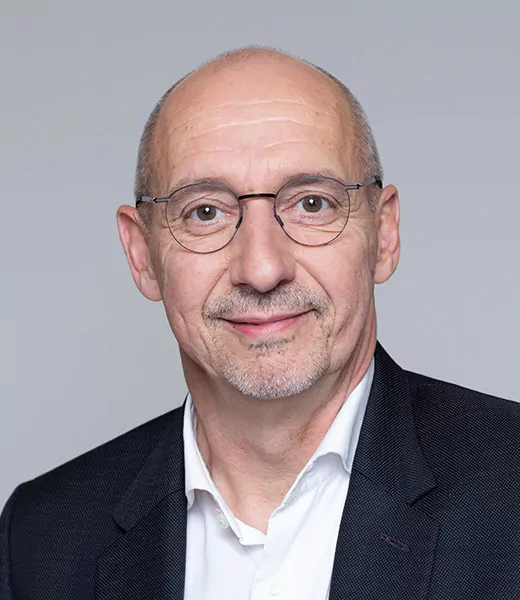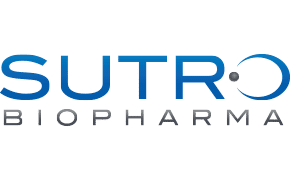预约演示
更新于:2025-11-24

BioNova Pharmaceuticals (Shanghai) Ltd.
更新于:2025-11-24
概览
标签
肿瘤
血液及淋巴系统疾病
其他疾病
小分子化药
ADC
疾病领域得分
一眼洞穿机构专注的疾病领域
暂无数据
技术平台
公司药物应用最多的技术
暂无数据
靶点
公司最常开发的靶点
暂无数据
| 排名前五的药物类型 | 数量 |
|---|---|
| 小分子化药 | 3 |
| ADC | 1 |
关联
4
项与 烨辉医药科技(上海)有限公司 相关的药物作用机制 ROCK1抑制剂 [+1] |
最高研发阶段批准上市 |
首次获批国家/地区 美国 |
首次获批日期2021-07-16 |
靶点 |
作用机制 menin抑制剂 |
原研机构 |
在研适应症 |
非在研适应症- |
最高研发阶段临床2期 |
首次获批国家/地区- |
首次获批日期- |
作用机制 CD74抑制剂 [+1] |
非在研适应症- |
最高研发阶段临床1期 |
首次获批国家/地区- |
首次获批日期- |
8
项与 烨辉医药科技(上海)有限公司 相关的临床试验NCT06724549
A Study to Evaluate the Effect of Food on the Pharmacokinetics of BN104 Tablets in Healthy Subjects
The goal of the clinical trial is to evaluate the effect of food on the Pharmacokinetics of BN104 tablets in healthy subjects. The main questions it aims to answer are:
Whether the pharmacokinetic characteristics of BN104 tablets will be affected by food? How well is the safety and tolerability of BN104 tablets in healthy subjects? To preliminarily evaluate the effect of BN104 on the QTc interval.
Whether the pharmacokinetic characteristics of BN104 tablets will be affected by food? How well is the safety and tolerability of BN104 tablets in healthy subjects? To preliminarily evaluate the effect of BN104 on the QTc interval.
开始日期2025-01-12 |
申办/合作机构 |
CTR20244700
评价健康受试者中食物对于BN104片的药代动力学影响研究
主要目的:评价健康受试者在空腹和进食高脂餐后单次口服BN104片的药代动力学特征以及食物对BN104片药代动力学特征的影响。
次要目的:1)评价健康受试者在空腹和进食高脂餐后单次口服BN104片后的安全性和耐受性;2)初步评估BN104对QTc间期的影响。
开始日期2025-01-08 |
申办/合作机构 |
NCT06746519
A Phase I/II , Multicenter, Open Label Clinical Study Evaluating the Safety, Pharmacokinetics, and Efficacy of the Combination of the Menin Inhibitor BN104 for the Treatment of Patients With Acute Myeloid Leukemia
The Phase I/II trial is to learn the safety, pharmacokinetics, and preliminary efficacy of BN104 taken twice daily combined with Intensive Chemotherapy or Venetoclax/Azacitidine in patients with acute myeloblastic leukemia.
开始日期2024-12-25 |
申办/合作机构  苏州大学附属第一医院 苏州大学附属第一医院 [+1] |
100 项与 烨辉医药科技(上海)有限公司 相关的临床结果
登录后查看更多信息
0 项与 烨辉医药科技(上海)有限公司 相关的专利(医药)
登录后查看更多信息
159
项与 烨辉医药科技(上海)有限公司 相关的新闻(医药)2025-09-09
·同写意
9月17日-18日,同写意将联合益诺思、清大浦恒、基锘威生物等机构在上海举办“上海未来细胞疗法决策者峰会”,敬请期待!
被视作PD-1/VEGF双抗标杆的ivonescimab(依沃西),再次迎来重磅数据更新。
9月7日,康方生物海外合作方Summit Therapeutics,在2025年世界肺癌大会上披露HARMONi研究最新成果,中位随访时间延长至13.7个月后,西方患者数据成熟度提升,OS的HR缩小至0.78(p=0.0332)。
与5月公布的数据相比,此次更新显示OS获益有所改善,但仍未达到研究预设的统计学显著性阈值(p≤0.0448)。在PFS方面,依沃西组显著降低疾病进展或死亡风险达48%(HR=0.52,p<0.00001),已达到研究的主要终点。
康方生物表示,HARMONi研究根据FDA的要求,随机纳入了约38%的北美和欧洲的患者。最新分析表明,西方和亚洲患者包括OS和PFS在内的临床研究终点获益“高度一致”。
然而,一场本应属于胜利者的庆典,骤然变成质疑与交锋的战场。
一边,资本市场上演了截然不同的剧情。9月8日港股开盘,康方生物股价不涨反跌,跌幅一度接近10%。次日,股价继续下探0.84%——这多少折射出投资者的态度分化。
另一边,华尔街的分析师们提出了尖锐质疑:为什么在长期随访中,西方患者的PFS改善率(33%)明显低于中国患者(45%)?如果东西方患者数据真的“高度一致”,为何试验会如此迅速地触达OS最终分析点,以至于西方人群的随访时间仅有9.2个月,远短于中国患者的32.7个月?
更核心的问题是:在一个强调“OS为王”的监管时代,仅凭强大的PFS数据和OS趋势,能否真正说服FDA?
基于前述种种质疑,同写意采访了Biotech创始人、药企数据统计部门高管、FDA前审评官员等业内人士,尝试从不同的观测维度,梳理出一些理解这款潜在“药王”的脉络。
事实上,围绕依沃西这款药物数据的争论,也远超出一个药物、一家公司的命运本身。
它触及了中国创新药出海的核心痛点:国际多中心临床试验的设计如何经得起推敲?当遇到东西方人群差异时,该如何证明数据的一致性?与Summit这样的美国Biotech合作,是否不如跟MNC的联姻来得稳妥?
站在数据与监管的十字路口,依沃西的遭遇正在成为整个行业的试金石——中国创新药的出海之路,究竟需要怎样的科学严谨性、国际临床能力和战略耐心?
所有人都在等待FDA的最终判决,而这场判决的意义,早已超出了一款药物的范畴。
TONACEA
01
对OS的困惑
“强烈谴责公司在明明Hamoni试验已经进行最终的OS分析且没有达到统计学显著性的情况下,不明确披露海外OS已经进行OS最终分析且没达到统计学显著性。”雪球上,一位用户言辞激烈地指责。
在HARMONi试验中,尽管PFS达到了预定目标,但依沃西在另一个主要终点OS方面的表现,未能满足市场的高期待。
礼邦制药首席科学官肖申解释说,早在5月进行初步分析时,依沃西的mOS是16.8个月,对照组为14个月,HR为0.79。“这个结果应该算有临床意义的差异,但P=0.057,高于预设阈值(0.0448),所以没有达到统计学上的显著性。”
作为合作方的Summit,当时也提及相关数据。不过,最初的对外沟通措辞,给许多投资者和分析师留下了这样的初步印象:HARMONi未来仍有机会在OS方面达到统计学显著水平。
8月,康方生物在发布的半年业绩报告中表示,“依沃西展现出良好的OS获益趋势”。
此次世界肺癌大会的报告证实,HARMONi在最终分析中,OS获益进一步提升。但是,有两个问题需要回应。
首先,HARMONi研究“4月DCO锁库了,9月数据还能用吗”?一篇文章解释说,DCO并非“终点线”,它更像是“快照”,只要统计分析计划里写清事件驱动规则,就能按预设事件继续随访下去。
简而言之,对于HARMONi研究,261例是方案写定的“终点线”,以事件为终点。由于4月尚未到事件终点,所以9月更新的数据是可被考虑的。
其次,虽然随着随访时间延长,患者OS获益持续改善,却也改变不了“未能达到OS临床终点”的事实。这与Summit此前披露的结果一致:依沃西联合化疗组的死亡风险为21%,p值为0.057,而统计学显著性标准设定是0.0448。
来自Leerink Partners的分析师说,这意味着,Summit哪怕重新审视OS,也无法就探索性分析宣称具有统计学意义,因为该分析并未被前瞻性地纳入正式的统计计划中。
最终的OS分析是由于438人试验中261例死亡而触发的。当时,依沃西联合化疗组有122例患者(56%)死亡,化疗组有140例患者(64%)死亡;mOS分别为16.8个月和14个月。
缺少足够坚实的OS数据,对依沃西来说尤其糟糕,因为FDA已告知Summit,需要有统计学上显著的OS获益,才能支持其在二线EGFR突变NSCLC治疗中的批准——至少这项适应症如此。
不过,一位临床专家向同写意表示,“OS statistically significant不如clinicall meaningful重要”,OS HR落在0.75-0.80之间,就已经是有临床获益的好药。
石药集团CMO黑永疆也觉得,从综合数据考虑,依沃西呈现的价值定位是应该整体导向的,不能因为OS没有达到统计学上的显著差异就一棒子打死。在这种语境下,PFS达到临床终点、OS持续改善,仍有较大机会进入美国市场。
TONACEA
02
“一致性”问题
Summit对新的数据感到鼓舞,康方生物也声称西方和亚洲患者包括OS和PFS在内的临床研究终点获益高度一致,尽管如此,数据结果却仍然引发困惑。
如果Summit使用HARMONi-A作为基准来设计HARMONi,同时假设依沃西在中国和西方患者中的表现相似,那么,HARMONi是怎样如此迅速地达到最终OS分析的触发点,以至于对于FDA最重要的西方人群的9个月随访显然太短了?
一种可能的解释是,在依沃西能够证明其治疗效果的最初几个月里,西方人群的死亡速度比预期要快。
Summit首席商业和战略官Dave Gancarz否认了这种猜测。他透露,当试验达到预设的死亡事件数量时,在西方人群的死亡事件比预期要少。
对OS曲线的Fierce分析显示,两项试验之间存在一些早期差异。
HARMONi研究中,依沃西获益在9个月后开始显现。而根据2024年公布的中位随访期17.6个月的数据,HARMONi-A研究的试验组和对照组的生存曲线分离耗时约一半,即在第5个月之前。到第9个月,依沃西联合化疗组在患者生存概率方面已较单纯化疗组高出4.4个百分点的绝对优势。
HARMONi-A进行首次中期OS分析时,数据截止时间为2023年6月,中位随访期为10.2个月,结果与此类似。2023年5月,Summit正式启动HARMONi试验。
国内一位统计学背景的审评专家向同写意表示,西方人群的入组时间短,导致随访时间偏少,有可能在事件数达标时依沃西的疗效还未得到展现,从而稀释了最终的获益,造成阴性结果结果。
对于数据的“一致性”,Summit临床开发负责人Jack West回应说,“中国患者与北美患者并不完全相同”,其中包括约14%的HARMONi-A患者仅接受了上一代EGFR抑制剂治疗,而不是HARMONi研究中的第三代药物。
至于西方人群的随访时间较短,West指出,HARMONi的招募速度较慢,部分原因是COVID-19过后试验活动尚未恢复正常。
9月8日的电话会上,Summit CEO Robert Duggan进一步补充道,2023年1月FDA曾破例允许其将中国单区域研究扩展为多区域试验,但北美医生对PD-1/VEGF双抗和中国数据的保守态度,客观上延迟了入组进度。
除了OS,长期随访中,HARMONi和HARMONi-A试验组患者的PFS差异为12个百分点。
在部分业内人士看来,5个百分点以内的差距很容易判断,而5到10个百分点的差距,则会引起一些争论。
支持者认为,HARMONi延续了PFS强阳性结果。一位国际药企统计数据部门前全球领导人告诉同写意,根据目前公开资料,“PFS应该是positive的”。所以,“这个study从统计意义上应该实现相应预设目的”。
简言之,HARMONi研究得到的33% PFS获益本身就相当可观,在肿瘤试验里可视为具有临床意义。5月初步分析记录的48% PFS获益,则意味着该试验确实达到两个主要终点之一。
然而,一些西方分析师觉得,鉴于既往在中国看到的其他III期临床试验结果表现,它们在中国以外有多大的适用性,需要打上一个问号。
West在最新的电话会上回应说,PFS分析显示亚洲与西方的HR高度一致(从0.52变为0.57),mPFS在各区域差异≤0.1个月,北美亚组OS HR是0.70,mOS未达(对照组14.0个月)。这些结果的置信区间高度重叠。
TONACEA
03
获批概率几何?
如果按照现有资料,FDA会批准依沃西吗?
Summit对中国以外人群进行了一项更长期的OS分析,依沃西试验组的死亡风险降低率已扩大至22%,名义p值改善为0.0332。北美和欧洲患者的死亡风险降低率是16%,北美患者为30%,中国患者为24%。然而,前述数据均不具有统计学意义。
相比起来,康方生物不久前的半年报报告披露,中国开展的HARMONi-A在最终分析中取得具有临床意义和统计学显著性的OS获益。
由于HARMONi的中国受试者——占整个试验人群的62%——直接来自HARMONi-A研究,这些受试者此前曾接受第三代EGFR抑制剂治疗失败,故而,此次更长的随访期仅针对西方人群。北美和欧洲患者的中位随访期在更新后为13.7个月,而最终OS分析时为9.2个月。中国患者的中位随访期为32.7个月。
在获批概率上,专家的意见呈现出不小的分歧。
例如,黑永疆就认为,总体上来看数据并没有变差,加上西方人的数据趋势向好,FDA允许其上市的可能性更大些。
“从正面看,PFS达到预设,OS也有改善。从反面看,PFS相差是2.4个月,FDA此前很少批过比差小于3个月的药物,除非OS结果足够好。”不过FDA前审评官,诺思格首席统计师何崑告诉同写意,他仍觉得批准的概率略大于一半。
而按照岸脉生物CMO朱永红的观点,历史上EGFR适应症在欧美的获批基于强PFS结果的并不少见,所以获批不是完全不可能。只不过,目前的大环境是,FDA刚刚强调过OS作为主要终点的重要性。
“个人感觉要看康方和Summit的totality of data package,包括其他试验的初步结果。”朱永红补充说。
8月,FDA发布的《癌症临床试验中总生存期评估新指南草案》明确要求,在可行情况下,OS应作为临床试验的主要终点。即使OS不作为主要终点,药企也必须收集并提交生存数据,以支持药物安全性和疗效的最终评价。
包括依沃西在内的PD-1/VEGF双抗,被认为在FDA此番改革中首当其冲。这类双靶药物理论上可协同提升疗效,然而其临床数据呈现一个尴尬的悖论:PFS数据耀眼,OS尚未“撞线”。
“FDA已经把政策收紧了,强调临床获益的金指标是OS。”烨辉医药创始人华烨分析,“从这次结果来看,OS数据没有达到显著性差别,所以想要获批的难度不小。”
和黄医药CMO石明则认为,临床试验西方人太少,应做全西方人3GTKI,获批希望小于一半。
另外,针对依沃西在北美人群的生存获益数据突出,华烨还提及,注册法规上通常只是将亚组数据作为支持性的次要证据,整体数据质量才是对批准结果影响更重要的砝码。
肖申也对此表示复议。FDA主要看全人群预设分析,而不是事后挑出的亚组。如果整体数据还没达到预设p值门槛,FDA态度会非常谨慎。他指出:“公告中名义p值是0.032,它是否按预先统计计划做了多重性、期中分析校正?如果与方案阈值一致,或经校正仍小于0.0448,那就获批就没问题。”
若是只有北美亚组显著,但整体人群还是边缘显著,肖申分析,FDA可能会要求补充数据,进行长期的随访,或要求做confirmatory trial(可能是上市后III期确认性研究)。部分情况下,尤其获得优先审评或突破性疗法指定,FDA也可能选择有条件批准。
不确定之处在于,FDA一般要求亚组分析必须在统计计划中预先定义,否则很难作为批准的主要依据。而倘若“HR=0.78”来自于后续随访数据,属于事后分析,结果不太会作为批准依据。
由于此次更新的数据截取时间非常近,Summit称,正在与FDA协商最优申报路径,从而确定最终的具体时间表。
TONACEA
04
出海的“if线”
2022年,康方生物与Summit达成最高总计50亿美元的“联姻”,刷新了当时的创新药出海记录,让业界看到了中国Biotech的风光可能。
但是,随着依沃西去年以来的数次III期临床数据更新,尤其是此番2025年世界肺癌大会上披露的全球HARMONi结果——OS未达到统计学上的显著水平——业界对这段佳话逐渐出现更多不同的解读。
国内一位Biotech CEO对同写意感慨,HARMONi直接纳入国内开展的HARMONi-A研究人群,这样的设计有些过于取巧。通常要开展一项多中心的国际临床试验,入组、对照等条件是统一的,桥接的做法势必带来临床数据的差异波动。
在业界看来,Summit以激进的战略著称,这多少解释了为什么北美受试者的占比为何如此少。
结果就是,尽管在金标准OS上进一步得到提升,却并未达到监管惯例所需要的显著性。
“这提醒我们,在国际临床试验设计上,对于统计分析方案要提前考虑好欧美人群的比重、入组和随访时间,减少回顾性分析存在的假阳性质疑。”前述国内统计学背景审评专家说。
倘若康方生物最初不是选择Summit,而是MNC,结果也许会大不相同。持有这种观点的人,从科伦博泰与默沙东、百利天恒与BMS的合作里找到背书。如此对比并不严谨,但业界的共识却是,MNC国际临床管理能力普遍更高,数据更扎实。
当然,目前为依沃西的国际化之路下定论,似乎还为时尚早。
Duggan透过9月8日的电话会告诉投资者,Summit的核心战略保持不变:持续推进对应市场份额更大的HARMONi-3/7研究,未来数月还会新增两项III期研究,对有利于药物开发的合作持开放态度。
而随着今年以来的MNC涌入,包括辉瑞、默沙东分别从三生制药、礼新医药引进PD-1/VEGF双抗,相信不久的将来,我们可以得到关于本土创新出海更完整的道路图景。
请您预测!
参考资料:
1.HARMONi研究更新数据:OS HR=0.78(P=0.0332),依沃西全球一致性获益数据在WCLC发布
2.Summit's global PD-1xVEGF data challenge regional consistency claims but show new promising survival trend
3.HARMONi 4月DCO了, 9月数据还能用? FDA认哪个?
4.FDA重拳出击:OS为王!
5.数据与决策的十字路口:Summit Post-WCLC 电话会十问十答
6.康方又一关
细胞疗法临床结果
2025-09-08
Having spent the majority of the year building out its oncology pipeline, Servier on Monday switched tack and announced a deal to strengthen its neurology portfolio via an agreement with Kaerus Bioscience. The deal focuses on the experimental drug KER-0193, a potential treatment for Fragile X syndrome. "KER-0193 is Servier's first asset acquisition in neurology and so marks a significant milestone in our 2030 strategy," remarked Claude Bertrand, Servier's executive vice president of R&D. Discovered and developed by Kaerus, KER-0193 is an orally bioavailable small molecule modulator of BK channels that specifically addresses abnormal function of BK channels linked to the genetic cause of Fragile X syndrome. KER-0193 completed a Phase I study earlier this year, with Servier set to initiate a Phase II trial in 2026. Under the agreed terms, Servier will make an undisclosed upfront payment to Kaerus to gain KER-0193, with the Medicxi-backed biotech eligible for development and commercial earn-out payments. The total value of the deal could reach up to $450 million. Earlier this month, Servier secured ex-US rights to IDEAYA Biosciences’ selective PKC inhibitor darovasertib for the potential treatment of uveal melanoma, building on oncology-focused transactions this year with Black Diamond Therapeutics and BioNova Pharmaceuticals.
临床1期并购引进/卖出临床2期
2025-09-08
French pharma Servier will pay up to $450 million for an experimental fragile X syndrome drug from UK-based startup Kaerus Bioscience, the companies said Monday morning.
The deal for KER-0193, an oral small molecule that recently wrapped a Phase 1 study, marks Servier’s first asset acquisition in neurology, the 71-year-old drugmaker said in a news release.
There are no FDA-approved medicines for fragile X, which is a neurodevelopmental condition that impacts about 1% of people with autism and intellectual disabilities worldwide, according to Servier.
It’s the second deal for Servier this month after paying $200 million upfront for the ex-US license to
Ideaya Biosciences’
experimental uveal melanoma cancer drug. Earlier this year, it also licensed an investigational RAS- and RAF-targeted cancer drug from
Black Diamond Therapeutics
.
The Kaerus move continues a streak of pharma companies
hunting for single assets
to pad out their pipelines. AbbVie, GSK, Sanofi, Eli Lilly and other drugmakers have taken the single-asset approach this year, as did Servier, when it bought a Phase 1/2 menin inhibitor
from BioNova Pharmaceuticals
for undisclosed terms in May.
KER-0193 “marks a significant milestone in our 2030 strategy, reinforcing our long-term commitment to establishing a leading neurology franchise focused on rare diseases,” Servier’s R&D chief Claude Bertrand said in the release.
Next year, Servier said it plans to take the drug into a Phase 2 trial in people with fragile X in the US and Europe.
Some companies have tried in the fragile X space, including
Ovid Therapeutics
,
Novartis
and Lysogene. Others are still in the field. Harmony Biosciences is
slated
to release topline data from a Phase 3 trial this quarter for a drug it got from its
Zynerba acquisition
.
Kaerus had kept relatively quiet over its nine-year history as it worked on creating a treatment to modulate BK channels that are tied to the genetic cause of fragile X.
The startup was incubated and mainly backed by Medicxi. The UK-based healthcare investment firm has seen other portfolio companies get acquired in the past two years, including vaccine maker
Vicebio
and antibody-drug conjugate startup
ProfoundBio
.
Kaerus has about a dozen employees and is led by CEO Robert Ring, who helped form Pfizer’s autism research unit and then went on to be the chief science officer at Autism Speaks, a patient-focused nonprofit and one of the largest autism research organizations in the US.
Ring was recruited to Kaerus, named after the youngest son of Zeus, about six and a half years ago. The biotech then brought KER-0193 into a healthy volunteer trial.
“We had achieved a proof of mechanism right out of our Phase 1 that really ramped up a lot of interest from companies,” Ring said in an interview with
Endpoints News
over the weekend. “We had been talking with companies prior to that. Our intention was to transact the company into the hands of a partner that really had that global presence and commitment to rare CNS.”
KER-0193 has secured orphan drug and rare pediatric drug designations from the FDA for fragile X.
Kaerus had been working on a few other projects, but mainly focused its efforts on fragile X. After the Servier deal closes, Kaerus will effectively wind down, Ring said.
“We have dabbled in other mechanisms, and not surprisingly as you’re working on chemistry, you find other things as you move forward, but really the entirety of Kaerus has been focused on the BK channel,” Ring said.

临床1期并购疫苗临床3期孤儿药
100 项与 烨辉医药科技(上海)有限公司 相关的药物交易
登录后查看更多信息
100 项与 烨辉医药科技(上海)有限公司 相关的转化医学
登录后查看更多信息
组织架构
使用我们的机构树数据加速您的研究。
登录
或

管线布局
2026年03月01日管线快照
管线布局中药物为当前组织机构及其子机构作为药物机构进行统计,早期临床1期并入临床1期,临床1/2期并入临床2期,临床2/3期并入临床3期
临床前
1
1
临床1期
临床2期
1
1
批准上市
其他
3
登录后查看更多信息
当前项目
| 药物(靶点) | 适应症 | 全球最高研发状态 |
|---|---|---|
甲磺酸贝舒地尔 ( ROCK1 x ROCK2 ) | 慢性移植物抗宿主病 更多 | 批准上市 |
BN-104 ( menin ) | 难治性急性白血病 更多 | 临床1/2期 |
BN-105 ( PRMT5 ) | 实体瘤 更多 | 临床前 |
Milrebrutinib ( BTK C481S ) | 弥漫性大B细胞淋巴瘤 更多 | 终止 |
Bezetabart debotansine ( CD74 x Tubulin ) | 弥漫性大B细胞淋巴瘤 更多 | 终止 |
登录后查看更多信息
药物交易
使用我们的药物交易数据加速您的研究。
登录
或

转化医学
使用我们的转化医学数据加速您的研究。
登录
或

营收
使用 Synapse 探索超过 36 万个组织的财务状况。
登录
或

科研基金(NIH)
访问超过 200 万项资助和基金信息,以提升您的研究之旅。
登录
或

投资
深入了解从初创企业到成熟企业的最新公司投资动态。
登录
或

融资
发掘融资趋势以验证和推进您的投资机会。
登录
或

生物医药百科问答
全新生物医药AI Agent 覆盖科研全链路,让突破性发现快人一步
立即开始免费试用!
智慧芽新药情报库是智慧芽专为生命科学人士构建的基于AI的创新药情报平台,助您全方位提升您的研发与决策效率。
立即开始数据试用!
智慧芽新药库数据也通过智慧芽数据服务平台,以API或者数据包形式对外开放,助您更加充分利用智慧芽新药情报信息。
生物序列数据库
生物药研发创新
免费使用
化学结构数据库
小分子化药研发创新
免费使用


